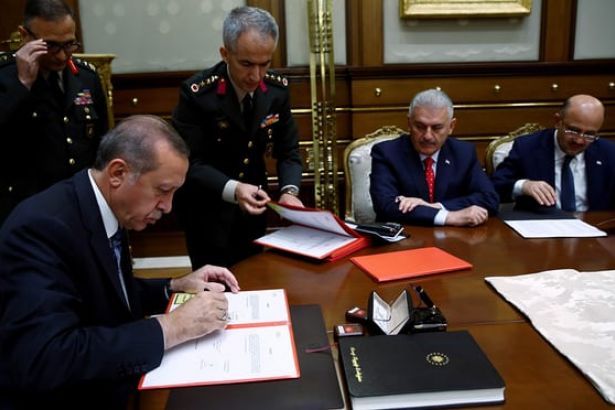Turkey's new presidential system causes confusions after Erdoğan's controversial decrees

As Turkey witnessed a transition from the parliamentary model to an executive presidential government system under Recep Tayyip Erdoğan following the June 24 elections, he announced new ministers on July 9 with the first presidential decree through which he assigned the new ministers whilst abolishing some ministries and establishing new ones.
In only a few days, some new presidential decrees, however, have been announced to correct some writing and material mistakes of the recently issued ones. It reveals that the content of the decrees was penned by unequipped officials.
For instance, one of the recent decrees attempted to correct a former one which had erroneously referred to a statutory law as a regular law. As Ankara had declared a state of emergency in the wake of a failed coup in July 2016, the government has ruled the country with state of emergency decrees, causing controversies in the order of law.
As the first presidential decree referred to non-existent appendixes of a former statutory decree, another decree has been declared to correct it. However, some experts argue that such mistakes did not arise from unintentional material wrongdoings but from an indecisive and puzzled mindset that is trying to establish a new system in the country. For instance, according to an article regarding the Ministry of Justice, a government unit originally named as “International Law and Foreign Relations” has been replaced as “Foreign Relations and the European Union”.
TURKISH GOV’T TURNS INTO A JIGSAW PUZZLE
As the first presidential decree conditioned being graduate from the faculties of political sciences, law, economy, business administration or economics and administrative sciences to be district governors, the recent decree has added graduation from some other faculties applicable for the same post, such as history, psychology, public relations and engineering.
As the third decree led to debates since it allowed non-professor academics to serve as university rectors, the fourth decree has reorganized the related article, mandating that all the to-be-rector candidates should serve as a professor at least for three years.
One of the controversial issues was the assignment of top bureaucrats as Erdoğan’s new system was expected to employ "non-officials" (people from the private sector out of civil servants). A recent presidential decree has abolished a rule, "having served as a public servant for 5 years at least" for being assigned to high governmental vice general directorates or departments.



